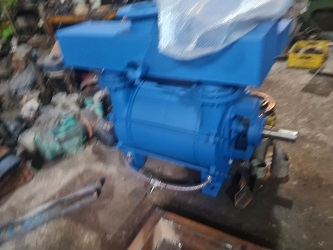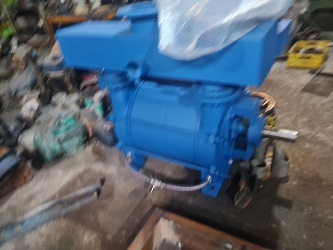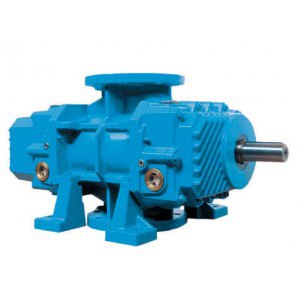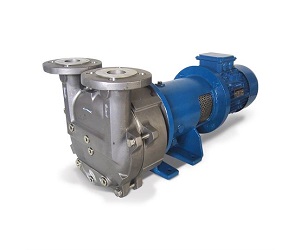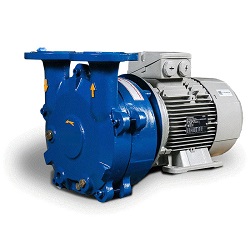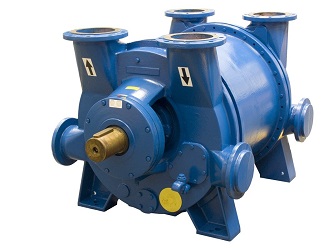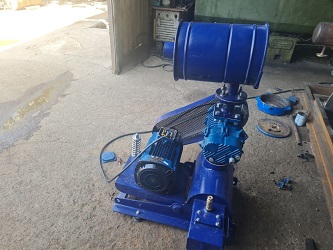My vacuum pump runs, but I cannot get a vacuum.
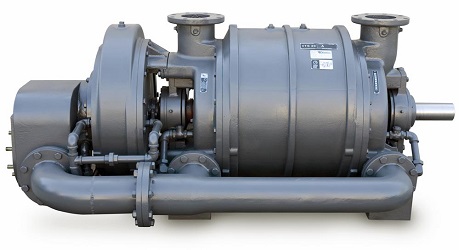
My vacuum pump runs, but I cannot get a vacuum.
The coupler between the shaft of the pump and the shaft of the motor is either broken or slipping. Make sure the set screws are tight on the flats of the two shafts.
If a vacuum pump runs but doesn’t produce a vacuum, it’s likely due to a leak in the system, issues with the pump itself, or problems with the vacuum gauge. Common causes include leaks in the system, worn pump components, incorrect oil levels or contamination, or a blocked inlet or discharge line.
-
Check for leaks:
Inspect all connections, hoses, and fittings for any signs of leaks. Use a vacuum gauge to isolate the system and check for leaks.
-
Consider system design:
Ensure the vacuum line is not too small or restricted, and that there are no sharp bends or constrictions that could hinder airflow.
-
Check non-return valve:
If there’s a non-return valve in the suction line, inspect it for proper sealing and functionality.
-
Oil Problems:
- Incorrect oil level: Ensure the oil level is correct and that the oil is clean and of the proper type.
- Oil contamination: If the oil is contaminated (dirty or contains moisture), flush and refill with fresh oil.
- Incorrect oil level: Ensure the oil level is correct and that the oil is clean and of the proper type.
-
Pump Wear:
- Worn vanes or seals: Inspect and replace worn or damaged vanes, seals, or other pump components.
- Rotor issues: Check for a stuck rotor or other issues with the rotor assembly.
- Worn vanes or seals: Inspect and replace worn or damaged vanes, seals, or other pump components.
-
Blocked Inlet or Discharge:
- Clogged inlet: Check for blockages in the inlet pipe, and clean or replace the inlet filter if necessary.
- Discharge line blockage: Ensure the pump’s discharge line is clear and unobstructed.
- Clogged inlet: Check for blockages in the inlet pipe, and clean or replace the inlet filter if necessary.
-
Gas Ballast Valves:
- Incorrectly set: Ensure gas ballast valves are properly set, as they can affect pump pressure.
- Incorrectly set: Ensure gas ballast valves are properly set, as they can affect pump pressure.
- Faulty gauge: If the gauge is stuck or not responding, it may be faulty and require replacement.
-
Moisture in the system:
Moisture can significantly impact vacuum pump performance. Consider purging the system with nitrogen to remove moisture.
-
High Altitude:
At higher altitudes, the pump may not achieve the same vacuum level due to reduced atmospheric pressure.
-
۱٫ Start with the basics:
Ensure the pump is properly connected to a power source and that the power switch is on.
-
۲٫ Check for leaks:
Isolate the system and use a vacuum gauge to check for leaks in the lines, connections, and fittings.
-
۳٫ Inspect and maintain the pump:
Check the oil level and condition, and inspect for any signs of wear or damage.
-
۴٫ Consider professional help:If you’re unable to identify and resolve the issue, consult with a vacuum pump specialist or technician.

